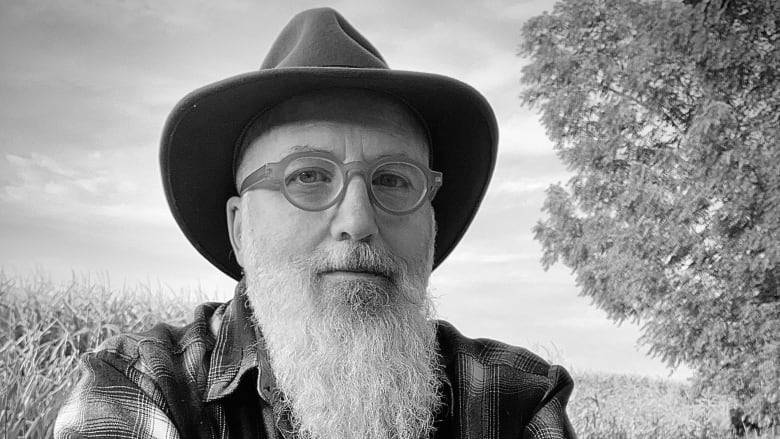Author says City of Hamilton is 'aggressively' removing his signs honouring a former slave
Sophia Burthen Pooley was enslaved by Joseph Brant, then Samuel and Margaret Hatt in 1800s

Those who enter Dundas, Ont., only expecting signs for service clubs or the local hockey team's Allan Cup win got a surprise this summer — on and off, they could also see signs honouring Sophia Burthen Pooley, who came to the town in the 1800s as a slave.
Now, the local artist and writer who erected the signs says he's in a battle with the City of Hamilton for violating a bylaw.
Since July, Andrew Hunter has posted about 75 commemorative signs recognizing Pooley, who was born Sophia Burthen in the U.S., and enslaved in the households of Mohawk leader Joseph Brant and then Samuel Hatt, co-founder of Dundas.
Hunter recently wrote a book about her and wants to boost her profile. He also wants to highlight how our signs only tell a certain history, and not the stories of people like Pooley.
But the project, he says, has turned into a battle where city workers "aggressively" tear down the signs, in what seems like minutes after he puts them up.
"Her story is remarkable," Hunter said about Pooley. "It's a way more powerful story of accomplishment and survival than any of these puffed-up white folks."

His message for the city: "I want you to think about this more deeply than it just being about policing."
The city has few words on the removal of Hunter's signs, except to say they violate the sign bylaw — which dictates the appearance and location of signs in Hamilton, and can lead to a maximum $5,000 fine under the Provincial Offences Act.
As for whether the city is pondering charges against Hunter, "to date, no charges have been issued," a spokesperson said in an email to CBC. "However, violation of the city's sign bylaw will result in charges."
Some of Hunter's signs have basic information, such as where Pooley was born and died. Others are paired with quotes from American writer and activist James Baldwin.
Residents seem to have tampered with the signs too, Hunter said. They've been coloured over with marker or torn in half and thrown on the ground.
The life of Sophia Burthen Pooley
Pooley was born into slavery in Fishkill, N.Y., in 1772, says Hunter, author of It Was Dark There All the Time: Sophia Burthen and the Legacy of Slavery in Canada.
When she was seven years old, she was taken to the Canadian border and sold to Brant. She lived near Six Nations for about 20 years before she was sold to Hatt, the co-founder of Dundas, Hunter says. She ran away in her forties and died in Peel Township in 1860.
In 1855, American abolitionist Benjamin Drew interviewed her for the book The Refugee: or, the Narratives of Fugitive Slaves in Canada.
Her story is "unique in the annals of slavery in Canada and in the United States," said Toronto historian Adrienne Shadd. "She provides us with a different take on this whole situation of slavery, because of the fact that she had been enslaved in Upper Canada and by a person of Mohawk background."

Shadd, who wrote about Pooley in her own book, The Journey from Tollgate to Parkway: African Canadians in Hamilton, supports Hunter's project.
So does the Hamilton Centre for Civic Inclusion, said Kojo Damptey, its interim executive director.
Damptey said what we know about Pooley, such as her resiliency and courage, "are the traits of people we should be celebrating."
Permanent plaque proposal
Hunter had placed signs in locations including on the side of 2 Hatt St., a 217-year-old heritage building and remnant of the Hatt legacy. The city's municipal heritage committee discussed that at a Sept. 24 meeting.

Robin McKee, another committee member, said the information on the signs is important, but he'd like to see a different method.
"I'm not opposed to the information on the plaque," he said. "I'm opposed to someone doing it on their own on a heritage property. It's similar to graffiti. It's just printed up nice so you can read it."
Hunter said he's not convinced a permanent sign will do. Municipalities tend to point to such things as evidence of their "wokeness," he said.
"It's not about a plaque or museum," he said. "It's about a change in how the stories are told and who gets remembered."
For more stories about the experiences of Black Canadians — from anti-Black racism to success stories within the Black community — check out Being Black in Canada, a CBC project Black Canadians can be proud of. You can read more stories here.
